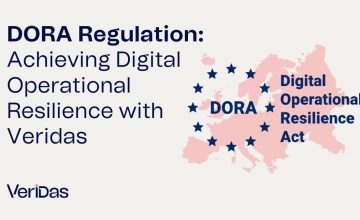Have you ever wondered why using face biometric authentication for security was so legally complicated in Texas? If you’re a business owner, a tech innovator, or care about how privacy and safety work together, this news matters.
Texas has just approved a groundbreaking update that clears the confusion around biometric technology, finally making it clear when and how it can be used to keep people and places safe.
The Old Problem: CUBI and the Legal Gray Area
Since 2009, Texas has regulated biometric data under the Capture or Use of Biometric Identifier Act (CUBI). The law required private companies to notify individuals and obtain their consent before collecting biometric identifiers — like facial scans, fingerprints, or retina images — for “commercial purposes.”
But here’s where things got tricky.
CUBI was written long before artificial intelligence (AI) and facial recognition tools became part of everyday security systems. It didn’t distinguish between selling products and protecting property.
So what happened?
If a retail store in Texas wanted to use facial recognition to stop a repeat shoplifter, it would — in theory — have to first notify that person and ask for consent. Not exactly a practical crime prevention strategy.
This gap left many businesses stuck in a legal gray zone, uncertain if using AI for safety could get them into legal trouble.
The Solution: TRIAGA Brings Clarity
Enter the Texas Responsible Innovation in AI Act (TRIAGA) — a major legislative update passed in 2025.
TRIAGA amends the CUBI Act by introducing a clear exemption for AI systems used for security purposes. That means companies no longer need to provide notice or get consent when AI is used specifically to:
- Prevent or respond to security incidents, fraud, or illegal activity.
- Protect the integrity and safety of systems.
- Investigate or prosecute criminal acts.
This isn’t a loophole. It’s a well-defined legal exception, designed to help Texans benefit from modern safety technology while maintaining strong privacy safeguards in non-security contexts.
Important note: This exemption applies to AI systems, not to biometric systems in general.
Harmonization: Aligning with TDPSA
TRIAGA also brings legal harmony.
Texas has already passed the Texas Data Privacy and Security Act (TDPSA), which allows data to be processed for security reasons. Now, CUBI is aligned with TDPSA, creating a consistent, predictable legal framework for businesses operating in the state.
That’s good news for everyone — from startups building fraud detection tools to major retailers enhancing on-site security.
What Does This Mean in Practice?
With TRIAGA now in place, companies and organizations in Texas can confidently use biometric technologies — including facial recognition — for legitimate security purposes.
Here are some practical applications that are now clearly permitted:
- Access Control: Secure entry to office buildings, apartment complexes, or restricted areas
- Event Security: Identify individuals on watchlists at concerts, stadiums, or large gatherings
- Fraud Prevention: Detect impersonators or prevent multiple fraudulent account creations using AI
The only condition? Security must be the main goal.
If the system is used to protect people, prevent crimes, or secure systems, it’s covered under the exemption.
But Let’s Be Clear: This Isn’t a Blank Check
TRIAGA isn’t a free pass to use biometric data for everything.
If a business collects biometric data for security, but later wants to use it for marketing, personalization, or convenience, they must still follow the original CUBI rules: notify the person and obtain their consent.
This legal reform is focused on enabling security, not on removing privacy protections.
Why This Matters for Texas
This update does more than fix a technicality. It’s a strategic shift for Texas, helping the state:
- Promote responsible AI adoption.
- Give businesses legal clarity.
- Strengthen public safety.
- Support innovation without sacrificing privacy.
With TRIAGA, Texas has created a modern legal foundation for AI-powered security that reflects today’s technological realities and tomorrow’s potential.
For Texans, it means better protection in more places.
For businesses, it means the end of legal uncertainty and the start of new opportunities.
Security and privacy work together, and Texas just proved it.






